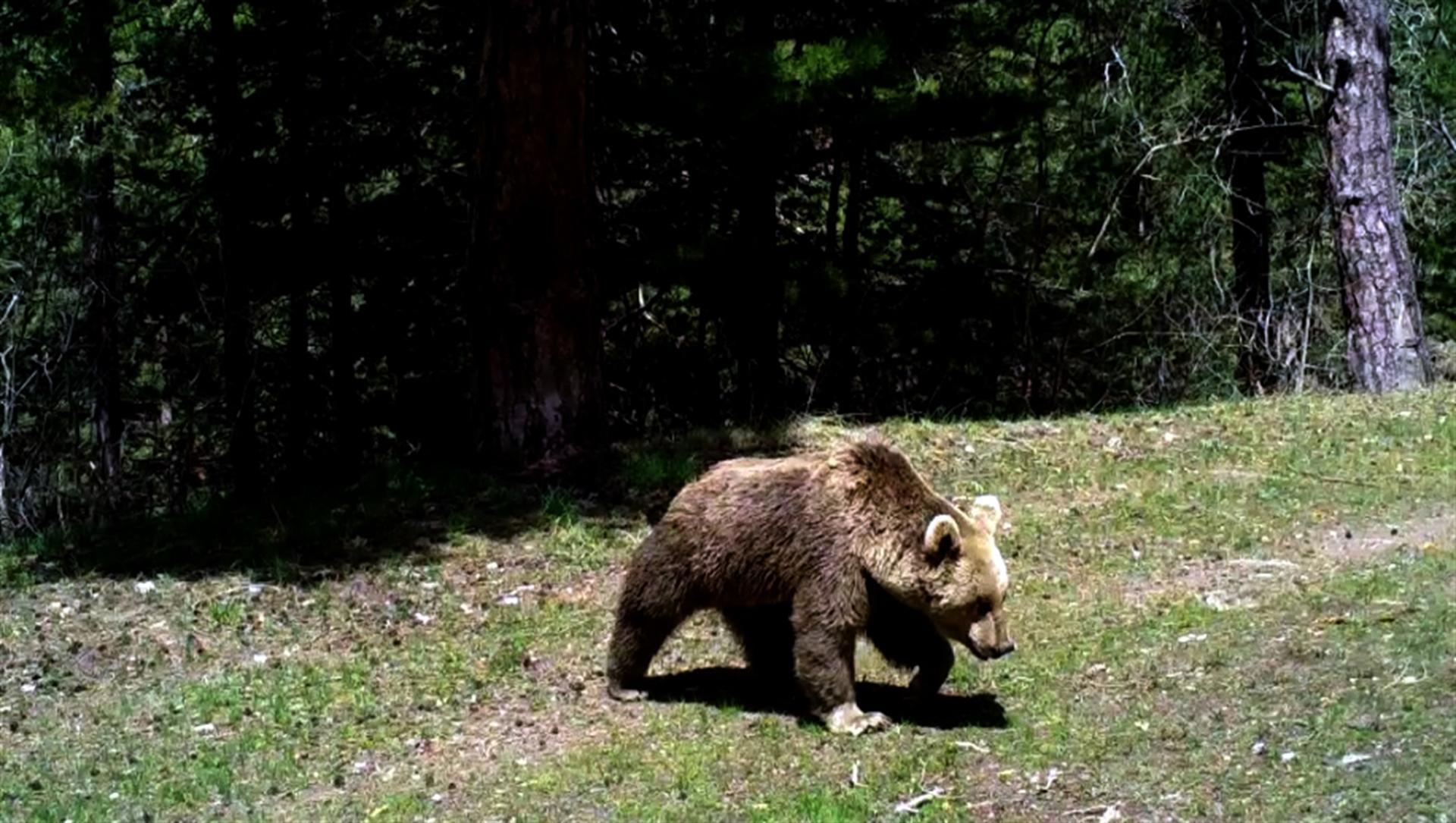
The only migratory brown bears in the world live in the Sarıkamış district of the eastern province of Kars. Before hibernation every year they travel long distances, walking to Artvin in the north in order to find food. This year, they have already returned to their nests in the Sarıkamış forest to go on a months-long sleep.
The brown bears go to the Şavlat forests every year in the summer to be fed better and store energy before hibernation.
The bears, which travel about 250 kilometers on the migration path, now will wait for the winter to sleep in their nests in the Sarıkamış forests.
Speaking to the state-run Anadolu Agency, Northern Nature Association president Çağan Şekercioğlu said that the world’s only migratory brown bears are in Sarıkamış.
Stating that the brown bears began to return from the Black Sea region where they migrated in summer, Şekercioğlu said, “Brown bears, which are followed with satellite transmitter, returned to Sarıkamış for hibernation. With the permission of the Agriculture and Forestry Ministry, we have been researching the wildlife of Kars, Erzurum and Sarıkamış forests since 2006. The most important of these are, of course, the brown bear, wolves and lynxes. We follow them with satellite transmitters.”
Şekercioğlu emphasized that brown bears migrate to the rich and humid forests of Şavşat in the Black Sea between August and September each year, and that they are fed with acorns and other forest fruits and then return to Sarıkamış.
He said that the bears will return to hibernation in the forests of Sarıkamış with the food they have stored after completing their return journey towards the end of October.
“Grizzly bears will struggle to survive in the difficult winter of Sarıkamış. In this respect, the calories they collect during migration are very important. They also hibernate in November. So far, we, as the Northern Nature Association, have caught 53 bears and satellite transmitters were attached to 41 of them. As of this season, we are currently following six bears. Although Sarıkamış’s garbage is unhealthy, it is a source of food for the bears. We see that nearly half of the bears eat from this garbage and do not migrate. Their nature has changed. Since this garbage is a source of food for some bears in the winter, the bears awake from hibernation and go to the garbage. So, their hibernation and patterns are disrupted.”